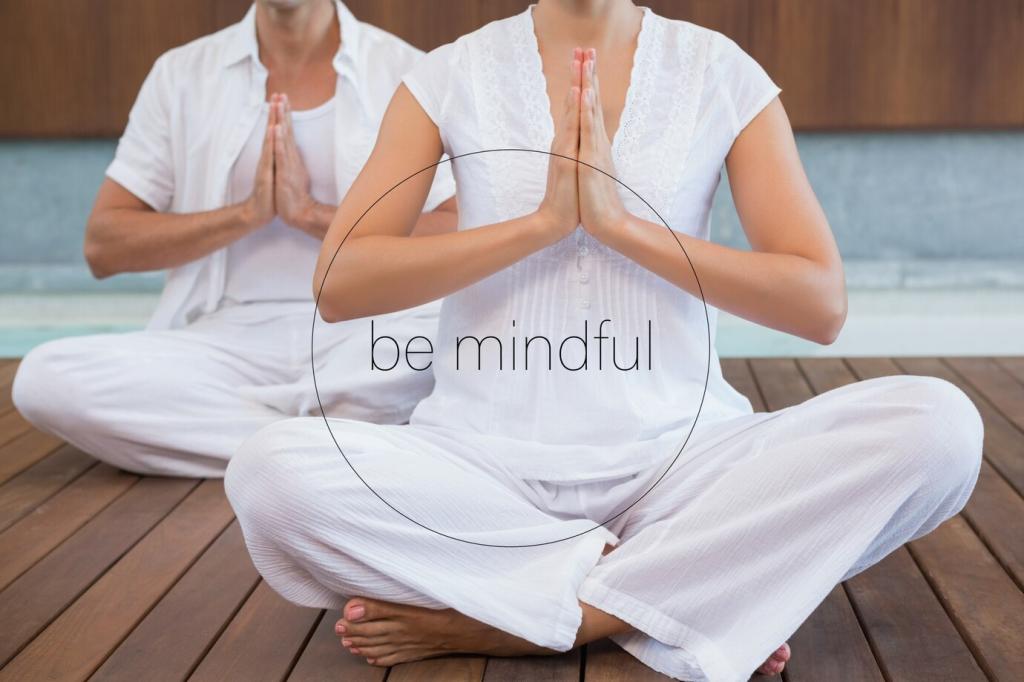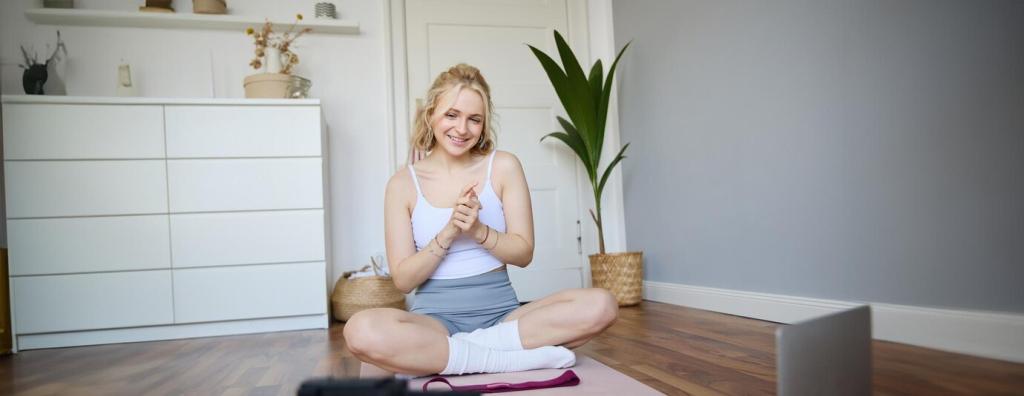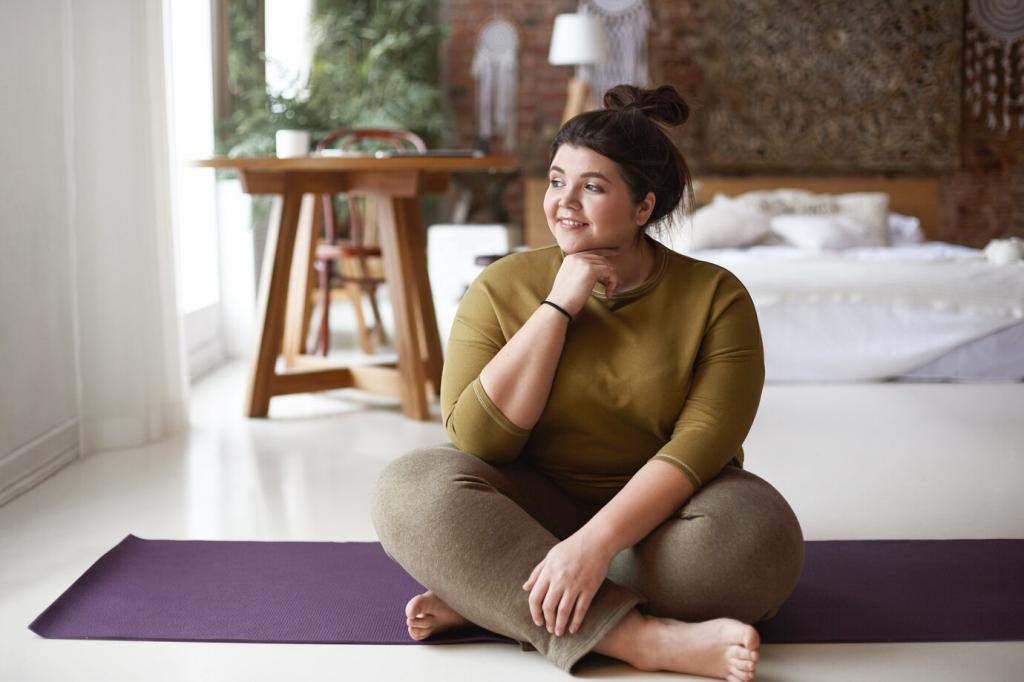The Role of Mindfulness in Yoga and Meditation for Beginners
Chosen theme: The Role of Mindfulness in Yoga and Meditation for Beginners. Welcome to a calm, supportive starting point where attention, breath, and kindness guide your first steps. Stay curious, share your experiences, and subscribe to follow gentle, beginner-friendly practices that grow with you.
Mindfulness: The Gentle Core of Beginner Yoga and Meditation
Before any pose or technique, mindfulness invites you to arrive. Feel your feet, notice your breath, and let your shoulders soften. This quiet attention builds confidence for beginners, turning uncertainty into curiosity and creating a welcoming space for growth.
Your breath is a built‑in guide that never rushes you. Inhale to notice length, exhale to release effort. As beginners focus on breath texture and rhythm, poses become steadier, thoughts feel lighter, and meditation feels more accessible and less intimidating.
Mindfulness replaces perfectionism with observation. Instead of pushing for ideal alignment, you ask, “What do I feel now?” This gentle shift protects beginners from strain, supports safety, and encourages sustainable progress that keeps you motivated to return tomorrow.

Five Mindful Minutes That Change Everything
Set a timer for five minutes. Sit comfortably, close your eyes gently, and track ten breaths. When thoughts wander, label them kindly as “thinking,” then return. This simple ritual stabilizes attention and builds the confidence beginners need to continue.
A Body Scan in Child’s Pose
Kneel, fold into Child’s Pose, and scan from forehead to toes. Notice warmth, pressure, or tingling without fixing anything. This mindful inventory helps beginners learn body signals, reduce tension, and cultivate a compassionate listening attitude toward themselves.
Soft Sun Salutations with Attentive Breathing
Move slowly through a shortened Sun Salutation, pairing each motion with a breathable rhythm. Inhale to reach, exhale to fold, pause to feel your spine. Beginners discover balance and steadiness when movement and breath cooperate rather than compete.

When Thoughts Race Like Traffic
Racing thoughts are normal, especially for beginners. Try labeling streams as “planning,” “worry,” or “memory,” then refocus on breath or sensation. This gentle naming breaks the spell of distraction and restores a sense of calm, clarity, and presence.

Feeling New or Self‑Conscious
Mindfulness reframes self‑consciousness as a universal experience. Place a hand on your heart, breathe, and silently say, “I am learning.” This practice builds psychological safety, helping beginners remain engaged without comparing themselves to others in the room.

Listening Before Stretching
Instead of chasing flexibility, pause and notice boundaries. Ask, “Is this sensation friendly, firm, or sharp?” Mindfulness teaches beginners to respect signals, preventing injury and fostering a trusting relationship with their bodies, breath, and evolving practice.
Stories from the First Steps
Nina arrived tense from work, worried she would do everything wrong. Her teacher asked her to notice her jaw and breathe. After three mindful exhales, her shoulders softened. That tiny release convinced her that mindful attention could shift her whole evening.

Calming the Stress Response
Slow, mindful breathing increases vagal tone, which can help soften the body’s stress response. Beginners often notice warmer hands, slower heart rate, and clearer thinking, making yoga postures steadier and seated meditation less daunting and much more approachable.
Training Attention Like a Muscle
Attention strengthens with repetition. Each time beginners notice wandering and return to breath, neural pathways involved in focus grow more efficient. Mindfulness transforms distraction into practice material, turning every moment into an opportunity to refine stability and clarity.
Sleep, Recovery, and Gentle Progress
Mindfulness practices before bed—like body scans or paced breathing—can improve sleep quality. Better rest supports learning new poses safely, reduces soreness, and increases motivation. Beginners progress naturally when their nervous systems feel restored, grounded, and genuinely supported.
Growing a Consistent, Kind Practice
Attach practice to something you already do: after brushing teeth, sit for three breaths. These small anchors reduce friction and help beginners experience daily wins. Over time, brief mindful moments accumulate into steady confidence and lasting, compassionate discipline.
